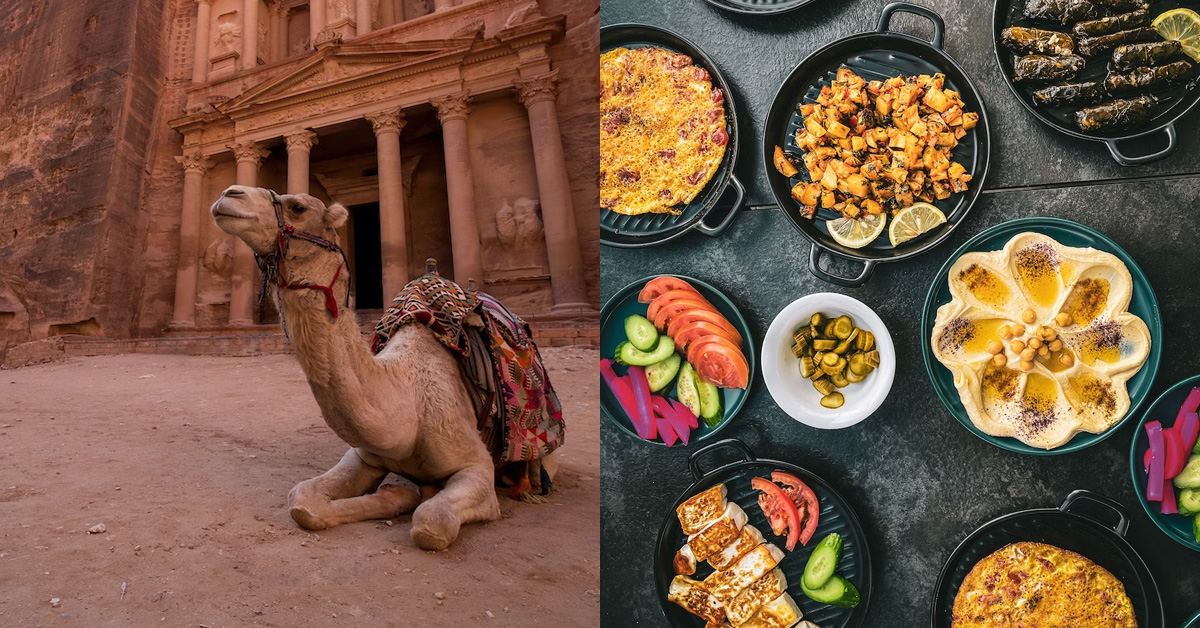Jordanian cuisine is a reflection of the country’s rich history and diverse cultural influences. Located at the crossroads of the Middle East, Jordan has been a melting pot of various civilizations, including the Nabateans, Romans, Ottomans, and Arabs. This has resulted in a unique culinary tradition that blends flavors and techniques from different regions.
Jordanian food is known for its bold spices, fresh ingredients, and hearty dishes that are perfect for sharing with family and friends. From the famous mezze platters to the succulent grilled meats, Jordanian cuisine offers a delightful culinary experience that is sure to satisfy any palate.
Jordanian cuisine halal or not?
Is Jordanian food halal?
Yes, Jordanian food is generally halal, meaning it is prepared and consumed in accordance with Islamic dietary laws.
However, it is always important to check the ingredients and preparation methods of specific dishes to ensure they are halal.
What kind of food do Jordanian eat?
Jordanian cuisine is a blend of Mediterranean and Middle Eastern flavors. Some popular dishes include:
- Mansaf: A traditional Jordanian dish made with lamb, rice, and a yogurt sauce.
- Falafel: Deep-fried balls made from ground chickpeas, served with tahini sauce.
- Shawarma: Thinly sliced meat (usually chicken or lamb) served in a pita bread with vegetables and sauces.
- Maqluba: A one-pot dish made with rice, vegetables, and meat.
- Kebabs: Grilled meat skewers, usually made with lamb or chicken.
- Hummus: A dip made from chickpeas, tahini, lemon juice, and garlic.
- Tabouleh: A salad made with parsley, tomatoes, onions, and bulgur wheat.
- Baklava: A sweet pastry made with layers of phyllo dough, nuts, and honey syrup.
- Kunafa: A dessert made with shredded phyllo dough, cheese, and syrup.
- Jordanian tea: A popular drink made with black tea, mint, and sugar.
How can you tell if the food is halal in Jordan?
In Jordan, halal food is widely available, and most restaurants and food establishments will have a halal certification displayed. The certification is usually issued by the Jordanian Ministry of Islamic Affairs and Endowments or a recognized Islamic organization.
If you are unsure whether a particular food item is halal or not, you can ask the restaurant staff or the vendor. They will be able to provide you with information about the ingredients and the preparation methods used.
You can look for the halal logo on food packaging in supermarkets and grocery stores. The logo indicates that the product has been certified as halal by a recognized Islamic organization.
It is important to note that some restaurants and food establishments may serve non-halal food items alongside halal ones. Therefore, it is always best to confirm the halal status of the food before consuming it.
Is it hard to find halal food in Jordan?
Jordan is a predominantly Muslim country, and halal food is widely available in most restaurants and supermarkets.
However, it may be more challenging to find halal options in some areas that cater to non-Muslim tourists or expats. It is always best to check with locals or do research beforehand to ensure that the food is halal.
Is Jordanian food healthy?
Jordanian cuisine is generally considered healthy as it is based on fresh ingredients such as vegetables, fruits, legumes, and lean meats. Traditional dishes like mansaf (a lamb and rice dish) and musakhan (a chicken and bread dish) are high in protein and fiber.
However, some dishes may be high in fat and calories, such as fried snacks like falafel and kibbeh. As with any cuisine, it is important to consume Jordanian food in moderation and balance it with a healthy lifestyle.
What is Jordanian food similar to?
Jordanian food is similar to other Middle Eastern and Mediterranean cuisines, such as Lebanese, Syrian, Palestinian, and Turkish.
It features a variety of grilled meats, rice dishes, stews, and salads, often seasoned with herbs and spices like cumin, coriander, and sumac.
Popular dishes include mansaf (a lamb and yogurt dish), falafel, hummus, tabbouleh, and shawarma.
Steps to find halal food in Jordan
Here are some tips to find halal food in Jordan:
- Look for halal certification: Look for halal certification on the packaging or menu of the food you are interested in. This certification ensures that the food has been prepared according to Islamic dietary laws.
- Ask locals: Ask locals for recommendations on where to find halal food. They may be able to suggest restaurants or markets that cater to halal dietary requirements.
- Check online reviews: Check online reviews of restaurants and food markets to see if they offer halal options. Websites like Zabihah.com and HalalTrip.com can be helpful resources.
- Visit halal markets: Visit halal markets like the Al-Salam Market or the Al-Quds Market in Amman to find a variety of halal food options.
- Look for vegetarian options: If you are unable to find halal meat options, look for vegetarian options as they are often halal.
- Avoid non-halal ingredients: Be aware of non-halal ingredients like pork and alcohol, which are not allowed in Islamic dietary laws.
- Ask questions: If you are unsure about the halal status of a particular food item, don’t hesitate to ask the restaurant or market staff for clarification.

